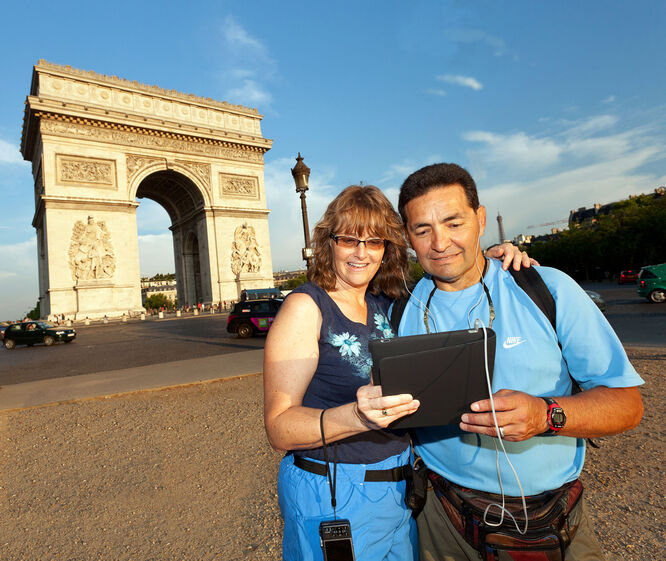Do I Need an International Calling Plan?
By Rick Steves
Assuming you plan to bring your phone to Europe, you'll want to think ahead about your smartest option for making calls and getting online. Start by assessing how (and how much) you will use it, whether making calls, sending and receiving text messages, or going online to check email, book reservations, get directions, or use other apps.
Should I Get an International Plan? (Or Euro SIM?)
Assuming you plan to bring your phone to Europe, you'll want to think ahead about your smartest option for making calls and getting online. Start by assessing how (and how much) you will use it, whether making calls, sending and receiving text messages, or going online to check email, book reservations, get directions, or use other apps.
-
Sign up for an international plan. For most travelers, who don’t visit Europe as frequently or for as long as I do, it’s easiest to set up your own phone with a basic international plan from your carrier. Most providers offer a simple bundle that includes calling, messaging, and data. And you get to travel with your US phone number, making it easy to connect with folks back home anytime, anywhere. The only downside: It's likely your most expensive option.
> See my tips on setting up an international plan on your phone -
Skip the international plan. More budget-conscious travelers can forego their carrier’s international plan and use Wi-Fi for getting online, calling, and messaging. Exorbitant rates for international calling or data use don't add up to much if you only call, text, or go online outside a Wi-Fi zone in emergencies. (This option works particularly well for people whose normal plan already includes unlimited texting and low-speed data overseas, as most T-Mobile and Sprint plans do.) And of course you can also make use of public computers (offered by some hotels) and hotel-room phones.
> See my tips on getting online in Europe -
Use a European SIM card (or eSIM). This option is worth considering if you expect to be using your phone a lot over a longer trip. Buy a European SIM card to insert in your (unlocked) US phone—or buy a cheap mobile phone in Europe. If your phone is sufficiently new you can instead download an eSIM from an international provider.
> See my tips on using a European SIM card

